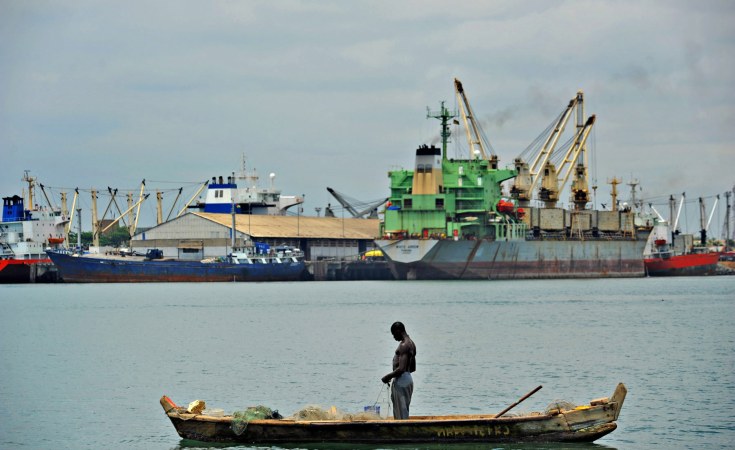While Africa is home to some of the world's fastest growing economies, if it aims to sustain this growth and improve the quality of life of its citizens, the continent cannot ignore current global trends. That's the word from the Africa Progress Panel chaired by Kofi Annan.
The group's 2012 Africa Progress Report (APR), released today, identifies four key trends:
- A surge in the youth population
- Pressure on global food security - more people on a warming planet
- Tectonic shifts in economics and politics – the rise of emerging powers
- Science and technology innovation - fueling growth and development
- A rising tide of citizen action
"None of these trends operates in isolation," says the report. "Each comes with risks and opportunities and each interacts with the others. How Africa's people, governments and development partners manage the risks and respond to the opportunities will determine how each trend plays out."
A key challenge facing African policy makers and administrators is the need to provide education and opportunities for its youthful population. The APR states that the median-aged African is just 18 years old -- seven years younger than counterparts in South Asia, and 16 years younger than in China.
Today, there are 70 million more Africans under 14 years of age than there were a decade ago. In the next 10 years, this number will more than double, rising by another 76 million. The "dependency ratio" – the ratio of those under 14 to those aged between 15 and 64 - imposes a significant burden for their sustenance and support on the state and individual families.
As countries age, the dependency ratio falls. In developed countries the current ratio is around 24 percent and in south Asia it is 47 percent. In Africa it is 77 percent.
There has also been rapid growth in the number of Africans aged between 15 and 24. By 2020 there will be 246 million Africans in this age group, requiring another 74 million jobs to be created in order to prevent already-high youth unemployment from rising.
In the absence of functioning social welfare systems, African participation in the labour market is among the highest in the world. But this does not provide an escape from poverty. Most Africans, says the APR, work in insecure, low-wage and often hazardous jobs, with no prospect of developing their skills. In Nigeria, Mozambique and Burundi, more than 60 percent of young people earn less than U.S.$1.25 a day.
"Even in fast-growing economies like Ghana, Rwanda, Tanzania and Uganda, formal-sector employment is starting from such a low base that it has failed to keep pace with the growth of new entrants to the workforce," says the report. "In Uganda, waged jobs grew at 13 percent a year between 2003 and 2006, but this absorbed less than one in five of new labour-market entrants."
The African Progress Panel recommends that to achieve advances, governments must provide the conditions to enable formal-sector wage employment, predominately in the private sector, to grow rapidly.
Alongside the challenge of job creation, the risk of food insecurity is higher in Africa than in any other region. In sub-Saharan Africa "there is not a single country which is rated as low risk," says the APR – more than 200 million people do not have a secure supply of food.
A report by the McKinsey Global Institute in 2010 claimed that Africa was home to 600 million hectares of uncultivated, arable land – 60 percent of the world total. However, the APR says that for many communities in Africa land is more than an economic asset. It is also an "essential part of livelihoods, culture and identity".
Yet, in an increasingly interconnected world, land resources in Africa are an attractive proposition.
The APR warns that "foreign governments concerned about future food supplies, agribusiness companies seeking production sites for bio-fuels and assorted foreign investors and speculators have joined the race to secure access to what, in their eyes, looks like the world's last great unexploited agricultural frontier – African farmland and water resources."
The report says that recent analyses show that some 2,000 land deals have been concluded worldwide in the past decade, covering 203 million hectares. Of this number, "Africa accounted for 948 acquisitions, covering 134 million hectares – an area larger than France, Germany and the United Kingdom combined".
The need for foreign investment in African agriculture is not in question, says the APR, but it says transactions should be carefully managed to contribute to the larger society. This requires improved transparency of contracts and good governance to avoid corruption and reckless deals.
"What Africa does not need, and cannot afford," the panel says, is policies that transfer land to investors motivated principally by a concern to feed populations in other countries, supply bio-fuel markets across the globe, or to secure speculative profit."


